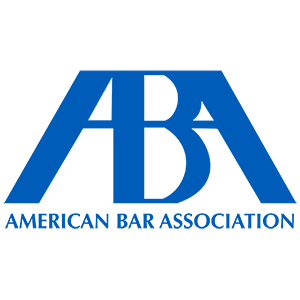DOJ Memoranda Indicate Major Shift in White Collar Crime Enforcement
May 7, 2025
Attorney General Pam Bondi issued 14 memoranda which significantly reshaped the Department of Justice’s (“DOJ”) enforcement priorities and operational directives, including establishing a task force to investigate alleged “weaponization” of the Justice Department and limiting inquiries into foreign influence. These memos addressed various aspects of DOJ policy, from corporate enforcement to civil rights litigation. Below is a summary of notable memoranda issued during that period:
- Pause on Foreign Corrupt Practices Act (FCPA) Enforcement: On February 10, 2025, President Trump signed an executive order pausing enforcement under the FCPA for at least 180 days. Attorney General Pam Bondi was directed to review and update guidelines governing FCPA investigations, aiming to limit enforcement under the Act.
- Total Elimination of Cartels and Transnational Criminal Organizations: Dated February 5, 2025, this memorandum outlined a strategy to dismantle cartels and transnational criminal organizations, emphasizing a comprehensive approach to counteract these entities.
- Freeze on Civil Rights Cases: The DOJ’s new leadership ordered a freeze on civil rights cases, instructing attorneys to halt new filings and review existing cases, signaling a significant shift in the department’s civil rights enforcement approach.
- Establishment of the Weaponization Working Group: Attorney General Pam Bondi initiated a review of alleged “weaponization” by law enforcement, particularly focusing on cases involving President Trump and the January 6 Capitol attack. This directive aimed to scrutinize past prosecutions and realign DOJ priorities.
- Shift in Corporate Enforcement Priorities: In early 2025, the DOJ signaled a shift in corporate enforcement, with memoranda and press releases indicating a transformation in the corporate enforcement landscape, potentially affecting white-collar enforcement actions.
- Targeting of ‘Frivolous’ Lawsuits Against Law Enforcement: A memorandum authorized the Attorney General and the Homeland Security Secretary to sanction law firms that file lawsuits deemed frivolous against law enforcement agencies, aiming to deter legal actions perceived as baseless.
- Directive to Stop Funding NGOs Undermining National Interest: President Trump announced a policy to stop funding non-governmental organizations (NGOs) that undermine the national interest, directing agency heads to review and align funding decisions with administration priorities.
By labeling certain lawsuits as frivolous and forming a Weaponization Working Group, the DOJ appears to be scrutinizing the motives behind previous enforcement actions — potentially viewing them as politically motivated rather than legally necessary. This may result in fewer investigations into executives and corporations accused of wrongdoing unless the case is airtight.
Under past administrations, corporate compliance departments operated under the assumption that DOJ would aggressively investigate misdeeds. The new approach may:
-
- Disincentivize self-reporting;
- Reduce cooperation with authorities;
- Shift focus away from compliance toward profit-centered strategies;
- A weakened enforcement landscape can embolden unethical behavior in finance, lobbying, and corporate governance.
Historically, when oversight relaxes, there’s a correlated increase in financial fraud, securities manipulation, and corruption — behaviors typically uncovered by DOJ probes.
Companies are sure to be uncertain about how laws will be enforced — not just relaxed, but selectively applied. This ambiguity may hinder long-term compliance planning and increase legal risk, especially if there’s a future administration change with a more aggressive stance.
In summary, these memos collectively suggest that the DOJ under Trump prioritized:
- Restraining federal power;
- Protecting perceived political allies or law enforcement from litigation;
- Promoting nationalistic interests over international regulatory cooperation.
For white collar crime enforcement, that means a pullback from broad, aggressive prosecution strategies, likely leading to:
- Fewer high-profile corporate settlements;
- Less pressure on compliance departments;
- Potential uptick in unchecked corporate misconduct.








